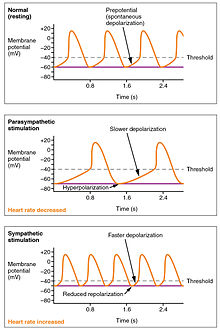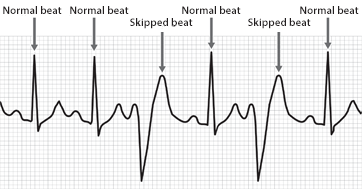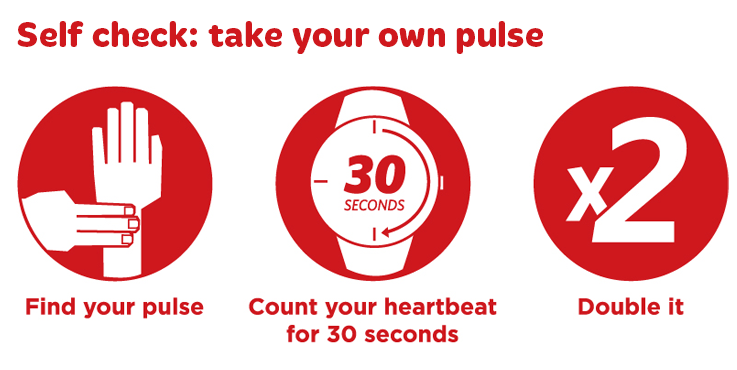Many parents know that their own pulse or heart rate should be within about 60 to 100 beats per minute. Your child, however, may have a higher pulse rate. Depending on their age, children can have a pulse between 43 and 180 beats per minute. Because heart rate generally decreases as body size increases, babies have the highest pulse. Tachycardia is a condition that makes your heart beat more than 100 times per minute. There are three types of it: Supraventricular. This happens when the electrical signals in the organ's upper.
Two years ago I had Mitral Valve Repair Surgery. I’ve struggled sometimes to know what’s a normal after-effect and what’s not. My Cardiologist assures me that my heart is just fine.
I decided to join this forum because I wonder if other people struggle with insecurities about their ‘new normal’ after MVR and what I should or shouldn’t call the Dr about. My surgery really turned my world upside down and I’m surprised to be two years post-surgery and still feeling this way. - My need for surgery two years ago totally took me off guard. I knew I’d had MVP since I was a child but had no clue that my MV had deteriorated and was severely damaged. I didn’t have swollen ankles or shortness of breath so I had no idea that what I thought were ‘normal occasional feelings of tiredness, forgetfulness and fuzzyheadedness’ were not. I thought the occasional heart thump or arythmia I experienced were part of menopause. Since my surgery I’ve felt so much better. I can now recognize that I was having a lot of symptoms prior to my surgery and really needed the repair (because I didn’t really believe my Dr when he told me my valve was so damaged). I just struggle now with knowing when I do have an occasional time of feeling weak, have some arrhythmia, or hear my heart thumping in my ears after going upstairs, if it’s ok or not. Sometimes I feel like I could go to the Dr every week to be sure my heart is ok.
Use our body mass index (BMI) calculator to give you an idea of whether you're underweight, overweight or a healthy weight for your height. Being a healthy weight can be a challenge, but the benefits are huge.
Heart Rate Chart

In this article

What is my BMI?

One way of working out whether you're a healthy weight is to calculate your BMI. To use this BMI calculator, enter your weight (kg) and height (cm), and your BMI will be calculated for you. It is used as a tool to help identify people who may need extra support and weight management.

Enter your height and weight
What does your BMI mean?
Underweight = <18.5
- This result means that you may be underweight. Being underweight can be associated with a range of health issues. If you're concerned about your weight, we recommend discussing your result with your GP, practice nurse or dietitian.
Normal weight = 18.5–24.9
- This result means that you are a healthy body weight which is generally good for your health. Keep up the great work!
Overweight = 25–29.9

- This result means that you may be overweight. Carrying extra weight is associated with a range of health concerns, including being at an increased risk of heart disease. If you're concerned about your weight, we recommend discussing your result with your GP, practice nurse or dietitian.
Obesity = BMI of 30 or greater
- This result means that you may be obese. Obesity is associated with a range of health concerns, including being at an increased risk of heart disease. If you're concerned about your weight, we recommend discussing your result with your GP, practice nurse or dietitian.
How accurate is BMI?
Although BMI is not a perfect measure, it is generally agreed to be the most useful and valid for adults (18 years and over). However there are limitations. For instance:
- It is less accurate as an indicator of overweight in adults with higher than normal levels of lean body tissue (muscle mass). This is because muscle weighs more than fat and the BMI does not take this into consideration.
- It is less accurate as an indicator of overweight in ethnic groups with smaller body stature (i.e. Asian ethnic groups).
Along with BMI, measuring your waist circumference can help you to determine whether you are carrying excess weight around your middle and your risk of heart disease and type 2 diabetes.
Because children are still growing, the BMI calculator on this website is just for adults and should not be used for children. If you're under 18 years of age, seek advice from your GP about what a healthy weight is.
Pregnancy also affects BMI, but a woman’s weight gain during pregnancy is necessary for a healthy baby. If you're pregnant, seek advice from your GP or midwife on healthy weight gain during pregnancy.
For people above a healthy weight, losing five to ten percent of your weight can lower blood pressure, improve cholesterol levels, and help protect against diabetes and cancer.
Normal Heart Beat For Women
Losing weight and keeping it off is about eating well, moving more, and instilling lifelong healthy habits.

Comments are closed.